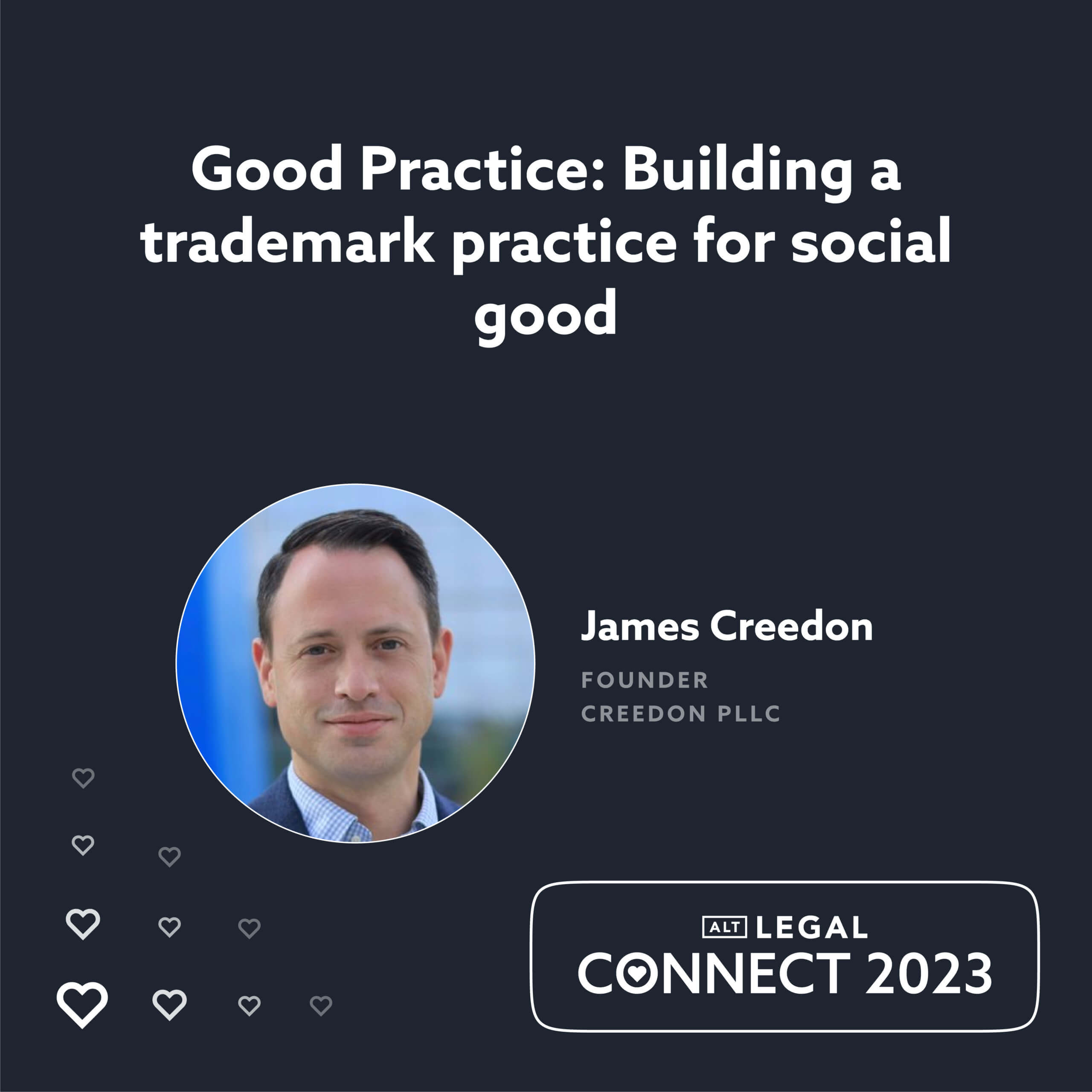
Good Practice: Building a trademark practice for social good
Our law firms can create an amazing future for our team members, our clients, and our communities, but this requires making the hard decisions to place our values at the core of everything we do. As trademark practitioners, we can help shape the way our clients project into the world, and influence them towards a greater commitment to the social good. In this roundtable discussion, James Creedon will guide participants through a dive into best firm practices for building a values-based culture internally and for partnering with clients to expand our values into the wider world. Participants in this important dialogue will discuss:
- Approaches to developing core values for our firms
- Methods to bake those values into the heart of our daily activities as trademark practitioners
- Tensions that arise as we try to put those values to work in the world in shaping client brands
- Creative ways to partner with our clients and our communities to expand our work for the social good
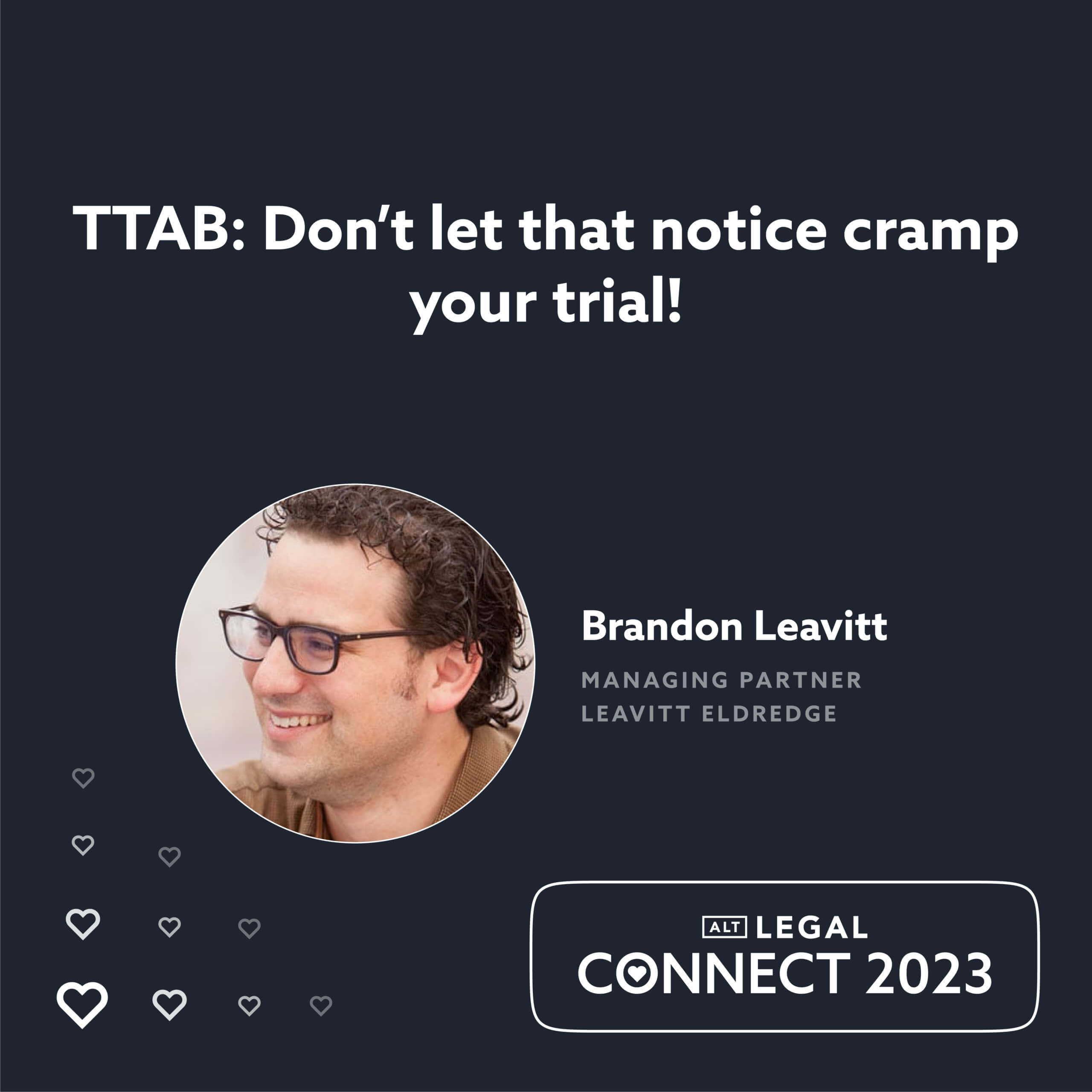
TTAB: Don’t let that notice cramp your trial!
Whether because of a third-party opposition or cancellation of your client’s trademark, it’s highly probable that at some point you’ll receive a notice that a client of yours has been called up before the Trademark Trial and Appeal Board. And they’ll inevitably come to you first for advice. Even if you normally refer out oppositions, it’s helpful to be able to understand them fully. You might even consider adding filing oppositions and defending against oppositions as part of your practice. In this workshop, Brandon Leavitt will guide you through effective ways to read, break down, and respond to oppositions. Participants will learn:
- The differences between TTAB proceedings and standard federal litigation
- How to look up and interpret TTAB opposition and cancellation notices
- Ways to determine and then advise client about the merits of the challenge
- How to effectively respond to a notice

Heaven Madrid: When WIPO filings can save you (and when to avoid them)
WIPO’s International (Madrid) System for registering trademarks is often considered a panacea for easy and painless registration of trademarks abroad without engaging a local trademark counsel. However, despite all the advantages of the Madrid System, it has traps unknown to trademark professionals who don’t deal with international registrations every day. In this roundtable, trademark attorney Taras Kulbaba will moderate a discussion for the participants to share their experiences working with the Madrid System, talk about its advantages and disadvantages, and discuss best practices for international trademark registration and management. In particular, participants will discuss:
- Choosing the most relevant filing strategy
- Preparing the list of goods/services for international registrations
- Recognizing potential upsides to Irregularity Notices
- Avoiding (and sometimes ignoring) Provisional Refusals
- Managing international trademarks after registration
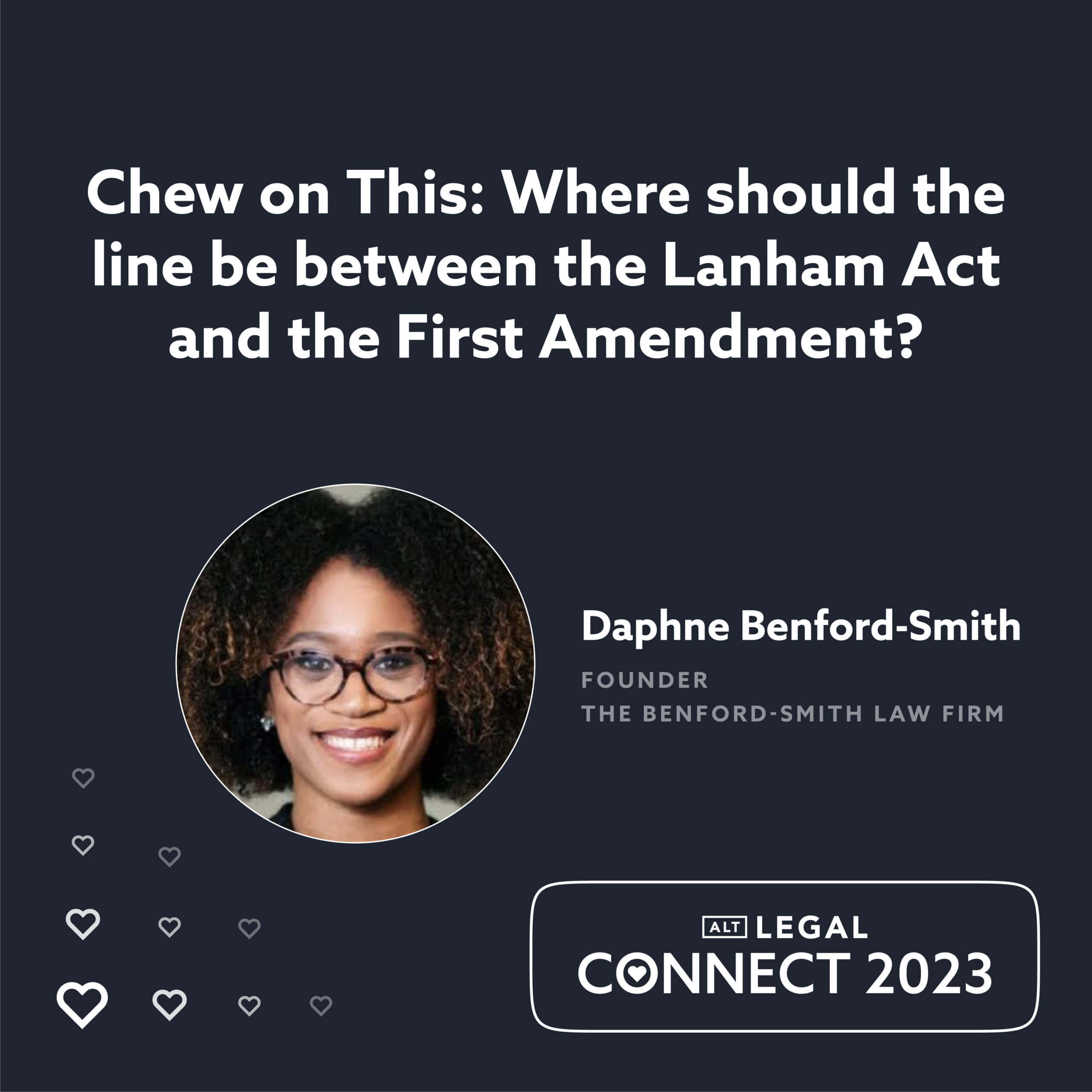
Chew on This: Where should the line be between the Lanham Act and the First Amendment?
The Jack Daniels v. VIP Properties (also known as Jack Daniels v. Bad Spaniels) case is currently pending before the Supreme Court of the United States and involves the decades-long tension between the First Amendment and trademark law. In this roundtable discussion, trademark attorney Daphne Benford-Smith of the Benford-Smith Law Firm will lead participants in a Socratic roundtable discussion about how to address that tension, both legally and practically. Participants will be given a synopsis to read before discussing and debating how federal courts should handle parody and other forms of “artistic expression” guaranteed by the First Amendment. In particular, participants can expect to discuss:
- Whether courts should apply the Rogers Standard (Rogers v. Grimaldi) to First Amendment and trademark issues
- The role, if any, the Trademark Dilution Revision Act has in First Amendment and trademark issues
- How thin or wide the line between parody and non-artistic is and should be
- The potential benefits and consequences of courts applying the Rogers Standard to trademark practice
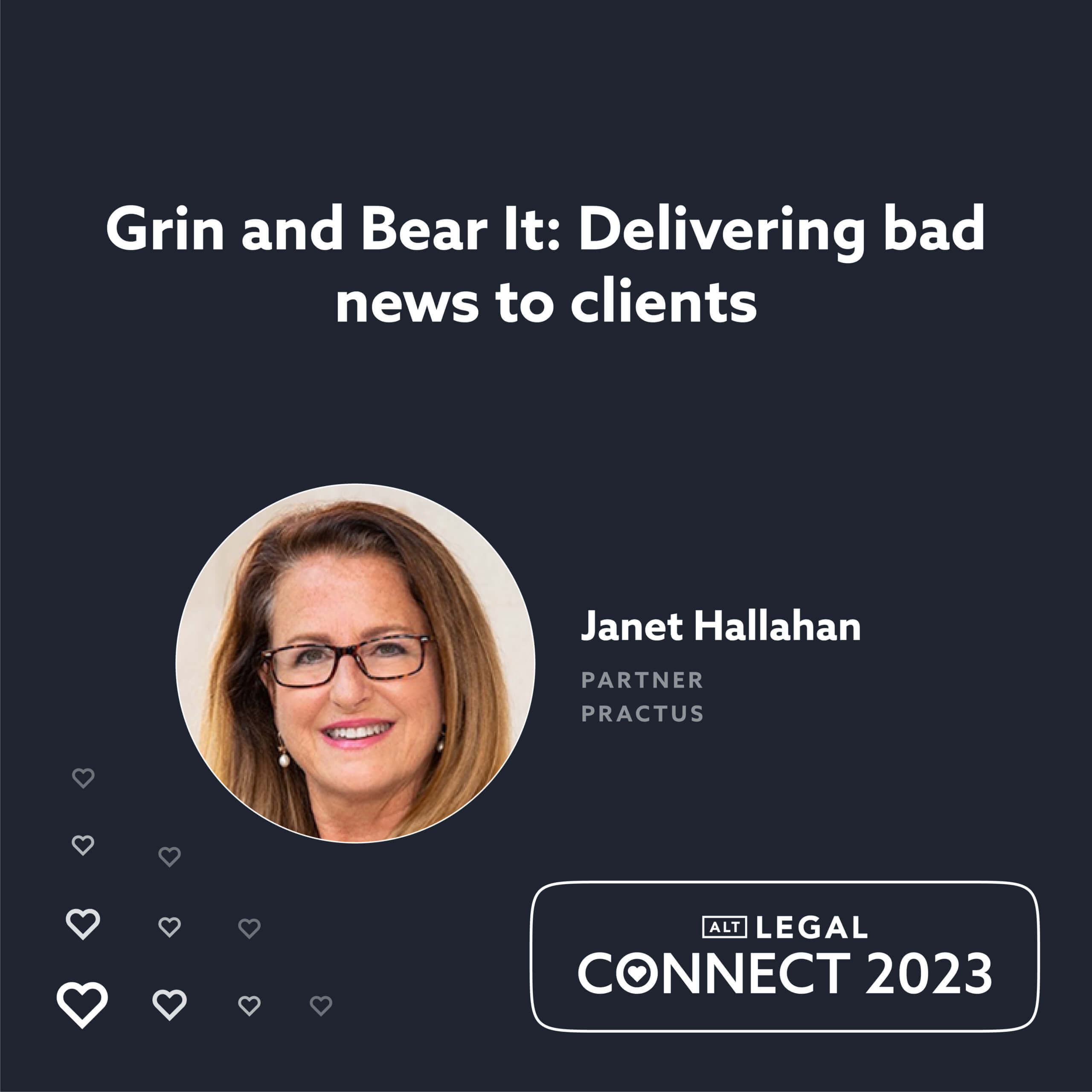
Grin and Bear It: Delivering bad news to clients
Clients often come to us for predictable and clear answers, but as you know: trademark law is often anything but. In this roundtable discussion, trademark attorney Janet V. Hallahan of Practus will lead participants in a roundtable discussion about how to answer difficult questions. By sharing the types of challenging questions they have faced, how they have answered them, and what tools they need to help their clients chart their way, participants will arrive at a better understanding of how to be comfortable having difficult conversations with clients. In particular, participants can expect to discuss:
- Providing guidance for selecting a strong mark
- Prioritizing mark registrations when funds are limited
- Explaining use and commerce requirements to clients
- Pitching monitoring and other upsell services
- Delivering both expected and surprise bad news to clients
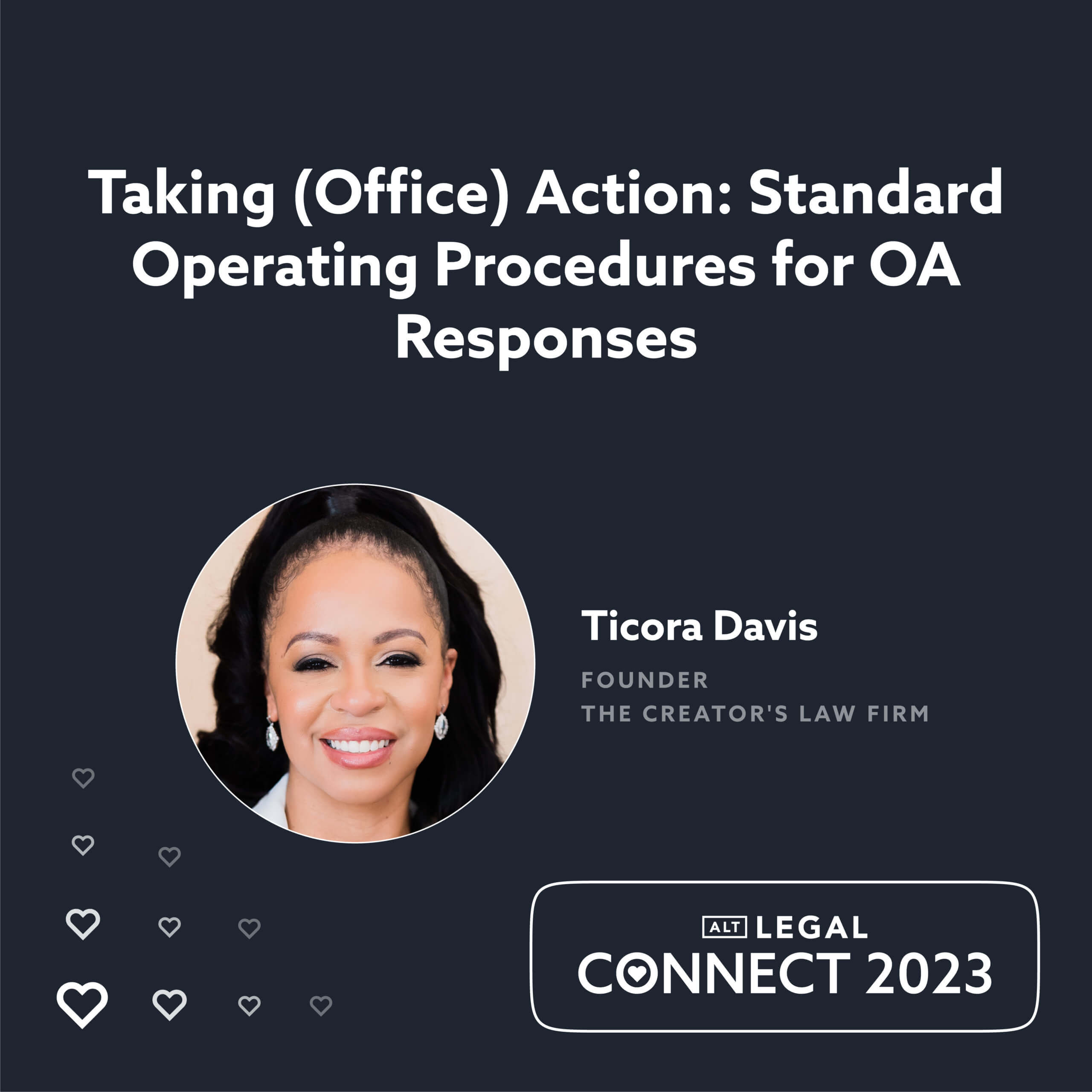
Taking (Office) Action: Standard Operating Procedures for OA Responses
The new deadlines imposed by the Trademark Modernization Act means that attorneys have to evolve to respond to Office Actions in half the time while being careful not to sacrifice client experience and simultaneously keeping their team from being overwhelmed. In this workshop, The Creator’s Law Firm Founder Ticora Davis will guide participants through a power-packed Standard Operating Procedure (SOP) training to streamline and strengthen their Office Action responses in order to draft faster responses and accommodate shorter deadlines while seamlessly incorporating culturally-relevant arguments. She’ll then help participants craft Office Action response templates, develop their own SOPs, and address how to inspire their teams in the process. Workshop participants will learn (and be entertained by) these topics:
- What’s the Procedure? What is a Standard Operating Procedure, and how does it differ from a business process?
- Diversity Day: How to seamlessly incorporate persuasive culturally-relevant legal arguments
- The ABC Rule: The keys to keeping SOPs alive in your company
- That’s What She Said: How-To steps to get your team inspired and invested in implementing your new SOPs

Enforcing Your Right to a Happy, Healthy, Wealthy Life
Stress turns everything into a mess, but the struggle to meet the demands of clients, pay your bills, AND come out a healthy, happy human is real! Join Tamara Pester Schklar, owner and founder of TMBTQ trademark law boutique and the founder of the Learn Trademarks class, and corporate wellness trainer and health and happiness strategist Michelle Zellner for this roundtable discussion. The secrets to building a thriving practice, without sacrificing your wellbeing, will be revealed. You will walk away with the tools to enforce your rights of health and happiness. Mark our words: you won’t want to miss it! Participants will discuss:
- Setting expectations (and boundaries) with clients
- Reducing stress associated with billing and collections
- Warning signs that stress is persisting
- Practical tools to pause the stress response
- Lifestyle strategies to support your wellbeing

Mind Your Business: Successful marketing activities for IP attorneys
It’s not easy to build a reliable pipeline of business, bring in clients, and increase revenue. All too often attorneys are uncertain whether the activities they partake in are the best use of their time and resources. In this roundtable discussion, IP business development coach Phil Cox will lead participants in a discussion about their marketing and business development strategies. Participants will learn from one other which marketing activities have helped them stand out, find the most promising leads, and connect with their ideal prospects. In particular, participants will discuss:
- How to approach marketing and business development
- Which activities to engage in to help nurture relationships
- How to establish and maintain an online presence
- When, where, and how to set up a business pipeline
- How to encourage and benefit from online reviews and firm rankings
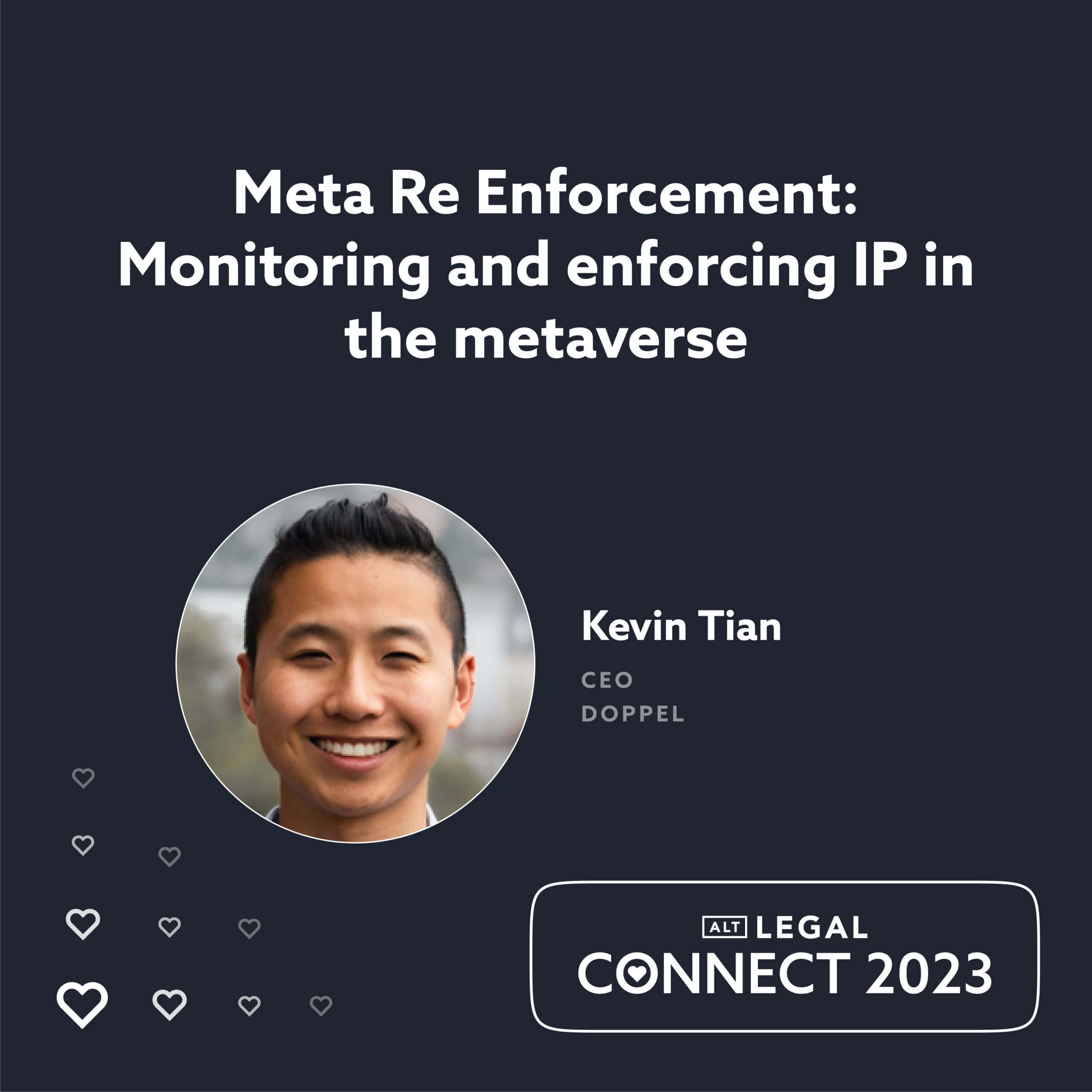
Meta Re Enforcement: Monitoring and enforcing IP in the metaverse
With the rise of NFTs and the metaverse, protecting your trademarks has become significantly harder. Thus, it is critical for legal teams to understand these digital channels and how to monitor and enforce in this space. Join Doppel Co-Founder and CEO Kevin Tian to learn how to navigate this new frontier. During this workshop, participants will learn how to browse different NFT exchanges for potentially infringing materials and how to submit takedown requests. Topics will include:
- What NFTs, the metaverse, and ENS domains are
- How to search for infringing materials on Web 3 platforms
- When and how to issue takedown requests
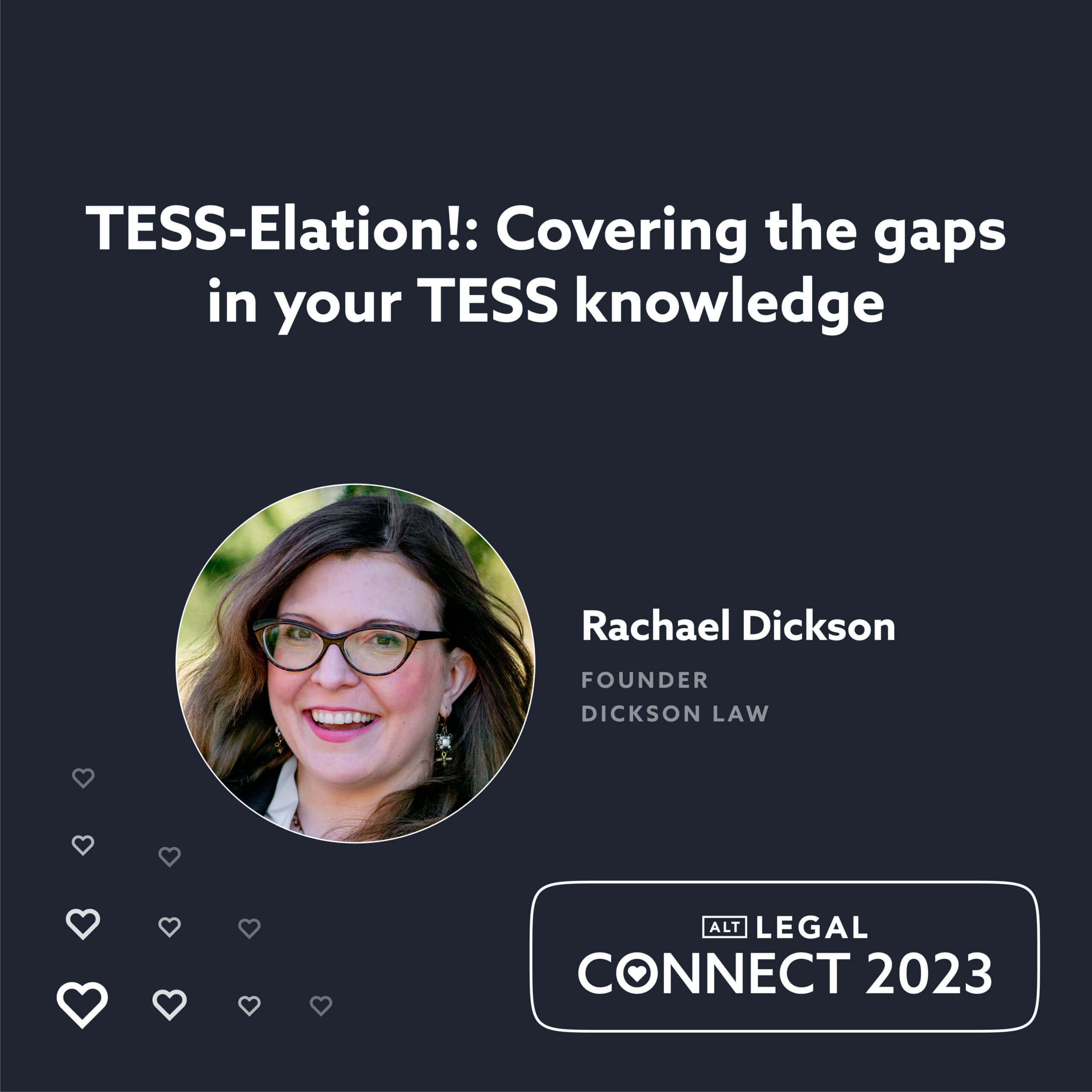
TESS-Elation!: Covering the gaps in your TESS knowledge
The USPTO’s Trademark Electronic Search System (TESS) is a powerful tool legal professionals can use for a wide variety of purposes. Professionals can use TESS for free and effective searches for everything from trademark application clearance to expungement and reexamination research to trends in trademark applications. In this workshop, former USPTO trademark examining attorney Rachael Dickson will give you a tour of TESS and provide some of her favorite tricks and tips. In particular, she’ll teach workshop participants how to:
- Use truncation and phonetic equivalents to find potentially conflicting marks
- Utilize examiners’ X-searches to guide searching
- Narrow results by relevant class and coordinated class
- Apply search results to other scenarios besides clearance
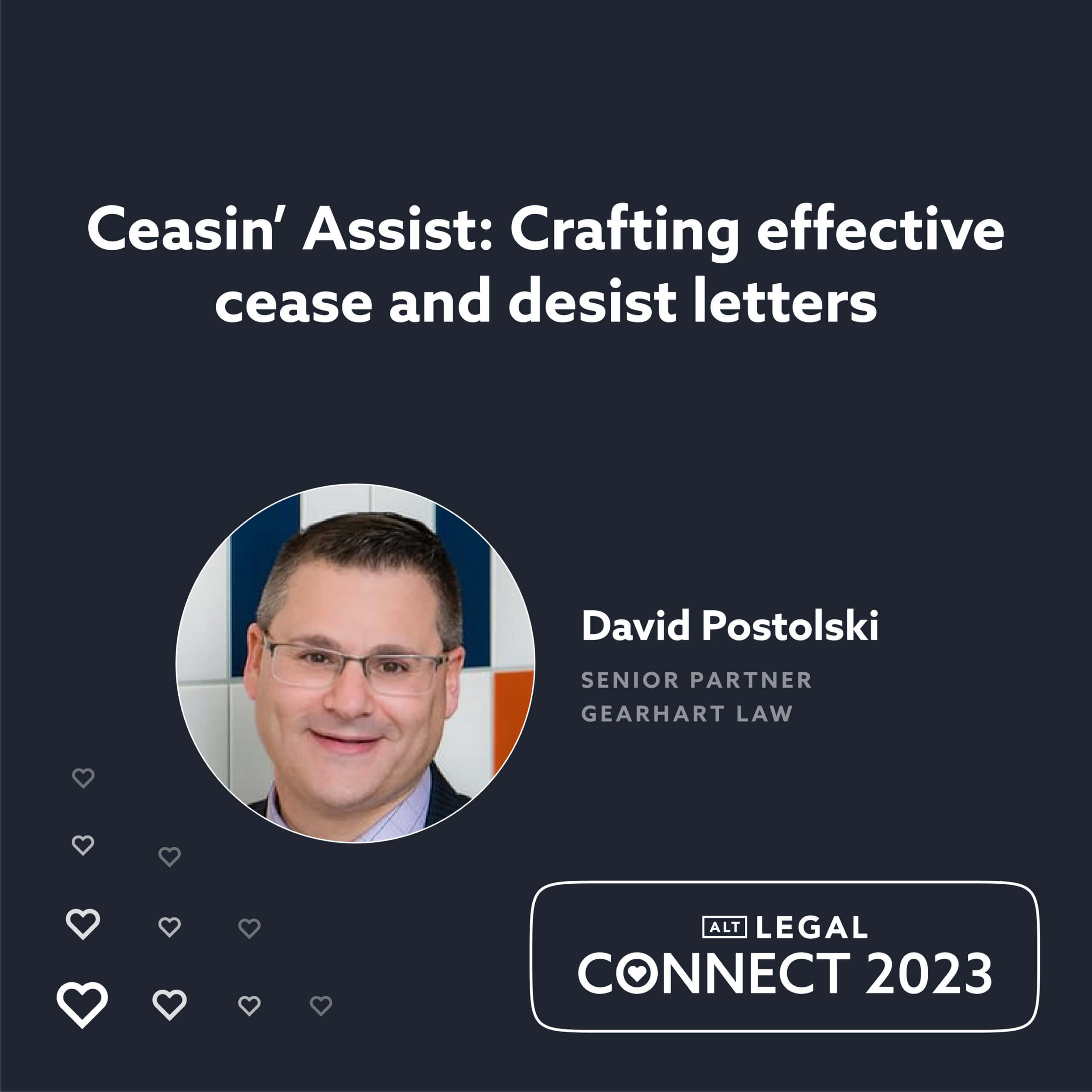
Ceasin’ Assist: Crafting effective cease and desist letters
Protecting brands from infringers requires action, but it can be difficult to write a desist letter that is so powerful that the only response is for the infringer to stop. In this workshop, Gearhart Law partner David Postolski will guide participants through what to include in a cease and desist letter. He’ll then help them craft cease and desist templates and checklists specific to their clientele and address how to follow up after the letter. Workshop participants will learn:
- How to evaluate the need for a cease and desist letter
- Which details to include in the letter
- How to determine the appropriate tone, length, and style
- What to do after the letter is sent to the alleged infringer

Don’t Give It a Secondary Thought: Establishing secondary meaning
Demonstrating secondary meaning is necessary for establishing acquired distinctiveness and can sometimes be required for filing preliminary injunctions. Gathering all the required evidence from in-house teams, marketers, and others can be chaotic and overwhelming. In this workshop, Phelps and Dunbar attorney Andrew Coffman will teach participants how to set up a system to collect evidence of secondary meaning at every step of the branding and registration process and organize it to save time and hassle. By building a process, you can provide value to your clients and help them use their marketing to strengthen their marks’ secondary meaning. In this workshop, participants will learn:
- What evidence courts consider
- Where to find (and how to create) that evidence
- How to preemptively organize evidence for when it’s needed

Right, Not Just Written: Effectively communicating with clients
We’ve all heard that often it’s not what you say but how you say it. When everything turns out how your client expected, good communication is the icing on the cake. When it doesn’t, clear communication can make the difference between satisfied clients who will recommend you to their friends and disgruntled clients who will complain about you every chance they get. In this workshop, Perkins Coie senior trademark paralegal Emily Quackenbush will guide you through principles of effective client communication to help you set clear expectations and keep clients informed. Participants will leave with email templates to help with:
- Introducing themselves to clients and outlining of scopes of work
- Explaining how to maintain a healthy trademark portfolio
- Discussing hiccups and unpleasant legal outcomes and how to potentially avoid them
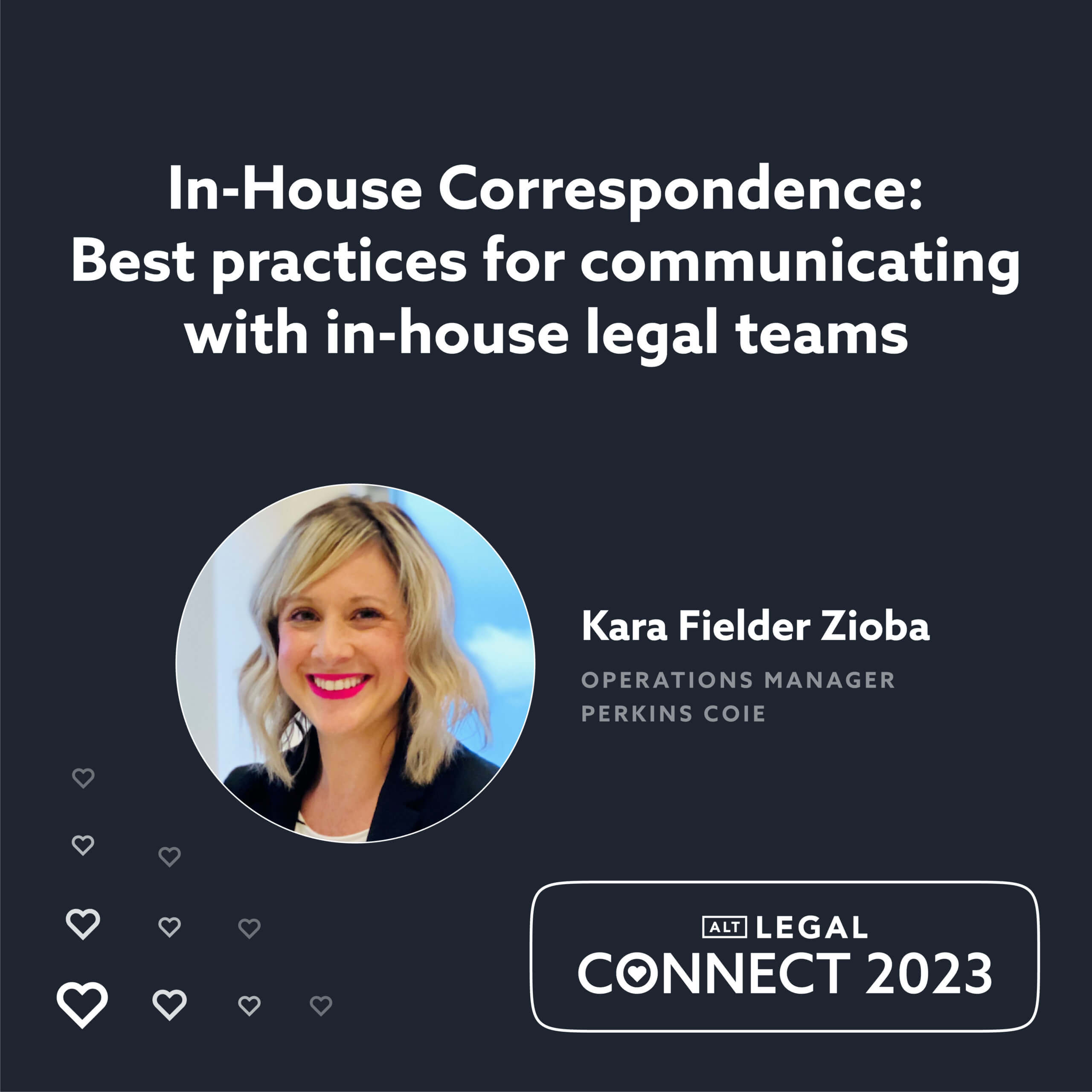
In-House Correspondence: Best practices for communicating with in-house legal teams
Inflation, supply chain issues, and staff shortages mean companies are doing even more with fewer resources and tighter budget constraints. This strain means it’s more critical than ever for outside legal teams to communicate efficiently and demonstrate their value. Join Kara Fielder Zioba, formerly of The Hershey Company and now at Perkins Coie, to discuss best practices for working with in-house clients. During this roundtable discussion, participants will talk about principles of effective communication with in-house teams and work towards understanding how to tailor their messages to them. Topics will include:
- Demonstrating understanding of clients’ business objectives and strategies
- Organizing information so that it’s digestible for key team members
- Providing clear, task-focused, timely, and effective communications
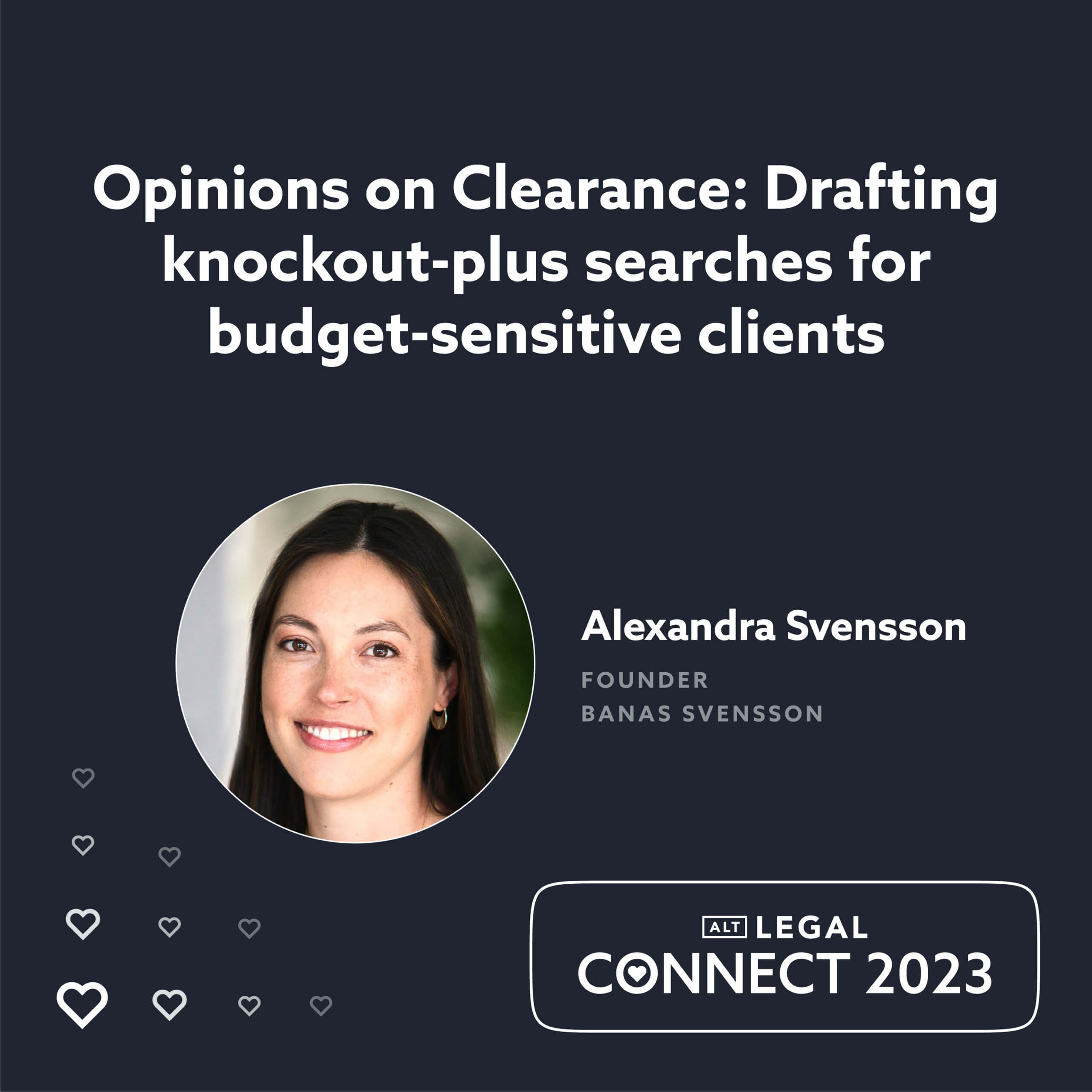
Opinions on Clearance: Drafting knockout-plus searches for budget-sensitive clients
As corporate budgets continue to tighten, clients are increasingly opting to forgo full trademark clearance searches in favor of beefed up preliminary or hybrid “knockout-plus” clearance searches. In this workshop, Alexandra Svensson will employ her experiences both as in-house counsel at Fortune 500 brands and as a firm attorney representing businesses of all sizes to provide tips and tricks for creating a template to share a knockout-plus opinion with clients. She’ll walk you through the clearance process from intake to delivery, specifically addressing:
- Instances when a knockout-plus search might be appropriate
- Considerations for mitigating risk when performing a knockout-plus search
- Pointers for creating your own master knockout-plus search opinion template
- Suggestions for customizing the search opinion for particular client profiles